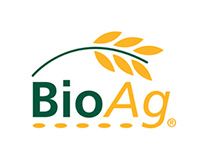
Agronomy
Topics
- The importance of soil carbon
Carbon is the main element present in soil organic matter, on average making up 58% by weight. The carbon present in soil organic matter is referred to as organic carbon. Soil organic carbon is a vital component of productive agriculture. In addition sequestration of ca...
- Soil health, crop nutrition and microbes
Growers and farmers would often read or hear about soil health or healthy soil. What does healthy soil mean? In simple terms it is when soils are supporting plant health, plants are supporting animal health, are stable or improving environmental aspects, and are activel...
- Soil, leaf, and tissue testing
BioAg nutritional programs can be developed for a wide range of dryland and irrigated agricultural and horticultural enterprises. Soil, leaf and tissue testing are an important part of developing a program for your farm because they provide real data about your paddock ...
- Regenerative agriculture
The term regenerative agriculture has become aligned, or associated hand in hand, with the improvement of soils, improved soil fertility, and the benefits this provides to farms and rural communities. The approach typically promoted is a holistic one, taking into accoun...
- Reactive phosphate rock fertilisers
The right phosphate rock, used effectively, is an excellent source of long lasting and non-polluting phosphates. The quality of phosphate rock and its suitability for use as a fertiliser varies from deposit to deposit and may also vary within a single deposit. There may...
- 'Super' or reactive phosphate rock?
What is superphoshate? Superphosphate, ‘SSP’ or ‘super’ is a fertiliser processed using sulphuric acid to boost the water solubility of phosphorus. Various strengths of P plus additions of nitrogen make up a range of products that feature a high proportion of nutrients ...
- Potassium deficiencies
Potassium (K) is an essential nutrient for plant growth and development. Because large amounts are absorbed from the root zone in the production of most crops and pastures, it is classified as a macronutrient. Potassium has many functions within the plant; including pho...
- Magnesium deficiencies
Five things to consider in identifying magnesium deficiency in pastures: Are there occurrences of grass tetany in my stock? Is it necessary to supplement feed magnesium regularly? Do soil or tissue tests indicate a magnesium deficiency? Do the pastures display nitrogen ...
- Measuring phosphorus in soils
Phosphorus (P) is an essential element in plant growth. Phosphate fertilisers are also an essential and major investment for growers. Making decisions on your phosphate fertiliser spend need to based on reliable information and sound advice. The decision making process ...
- Understanding soil test reports
Following are some explanations of the various facets of soil and soil test results. First looking at CEC, TEC, pH and organic matter, as these are the main four categories outside the actual nutrient data that affect availability and make up a good soil report. A BioAg...
- Nutrient mobility explained
The term 'nutrient mobility' refers to characteristics of macro and micronutrients within the soil and plant. Nutrients which are important for plant growth vary in their ability to move within the soil and plant. It is their mobility that determines their plant availab...
- Addressing soil heavy metals and salinity
Several heavy metals and salts are beneficial to crops and stock when present in trace amounts, hence the use of 'trace elements' when included in fertilisers.
- Twizel, New Zealand, multi-year trial
BioAg New Zealand commenced multi-year pasture trials in 2021 in the in low rainfall high-country of the Mackenzie Basin near Twizel, located in the South Island of New Zealand.
- Biostimulants increase yield benefits
The yield map from the Summer 2023 harvest near Brocklesby in Southern NSW visibly shows the positive impact of BioAg’s biostimulant program on yield.
- BioAgPhos® – enhanced reactive phosphate rock (RPR) fertiliser
Phosphate rock is a naturally occurring mineral that is used to manufacture water-soluble phosphate chemical fertilisers. As much of the phosphate rock mined around the world has little to modest benefit as a directly applied fertiliser, the phosphate (P) in the rock is...
